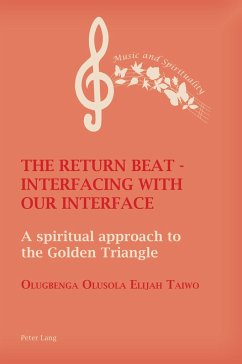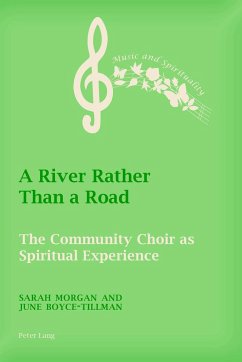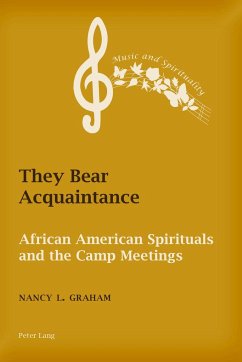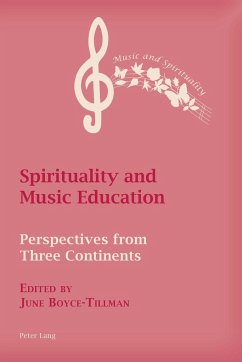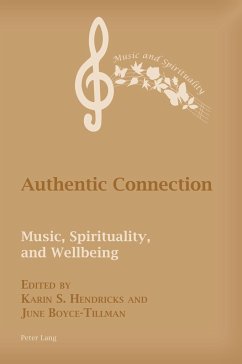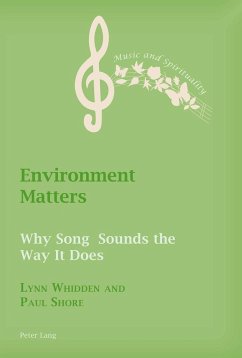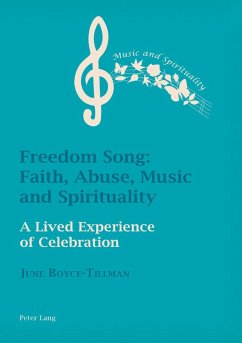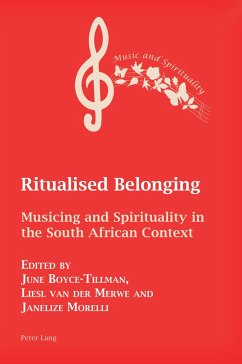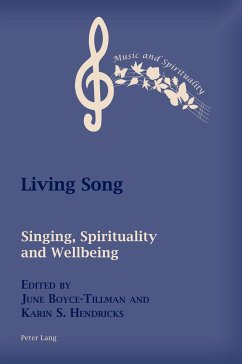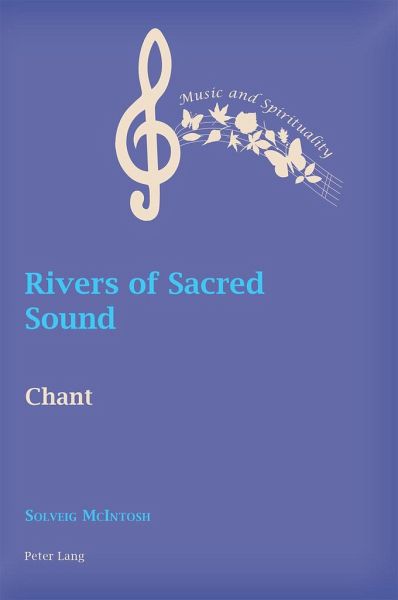
Rivers of Sacred Sound
Chant
Herausgegeben: Boyce-Tillman, June
Versandkostenfrei!
Versandfertig in 6-10 Tagen
64,00 €
inkl. MwSt.
Weitere Ausgaben:

PAYBACK Punkte
0 °P sammeln!
Rivers of Sacred Sound traces the flow of influences from East to West, fromBC to AD and from wordless jubilations to the setting of texts. It takes thediscussion about western chant beyond a European perspective.The text of this book, preceded by an introduction, is presented in sevenchapters and covers a period of approximately five thousand years. There aremany references all over the world to praising the divine with sound. Thusthe starting point is the praise song, a fundamental impulse in mankind. TheRg-Veda requests that our loudest-sounding hymn be accepted, as food mostdelightful to t...
Rivers of Sacred Sound traces the flow of influences from East to West, from
BC to AD and from wordless jubilations to the setting of texts. It takes the
discussion about western chant beyond a European perspective.
The text of this book, preceded by an introduction, is presented in seven
chapters and covers a period of approximately five thousand years. There are
many references all over the world to praising the divine with sound. Thus
the starting point is the praise song, a fundamental impulse in mankind. The
Rg-Veda requests that our loudest-sounding hymn be accepted, as food most
delightful to the Gods. The Psalms request us to make a joyful noise unto God
and to sing forth the honour of His name. Spontaneous songs became ritual
events. In an aural culture what was the role of gesture and what is its role
now? There are many doors to open in pursuing these and other questions.
This book opens some of them.
BC to AD and from wordless jubilations to the setting of texts. It takes the
discussion about western chant beyond a European perspective.
The text of this book, preceded by an introduction, is presented in seven
chapters and covers a period of approximately five thousand years. There are
many references all over the world to praising the divine with sound. Thus
the starting point is the praise song, a fundamental impulse in mankind. The
Rg-Veda requests that our loudest-sounding hymn be accepted, as food most
delightful to the Gods. The Psalms request us to make a joyful noise unto God
and to sing forth the honour of His name. Spontaneous songs became ritual
events. In an aural culture what was the role of gesture and what is its role
now? There are many doors to open in pursuing these and other questions.
This book opens some of them.





